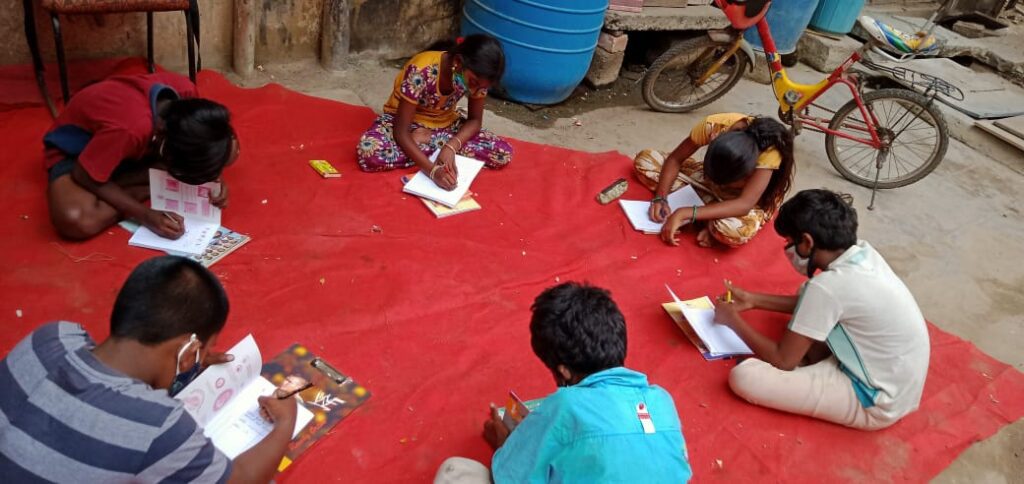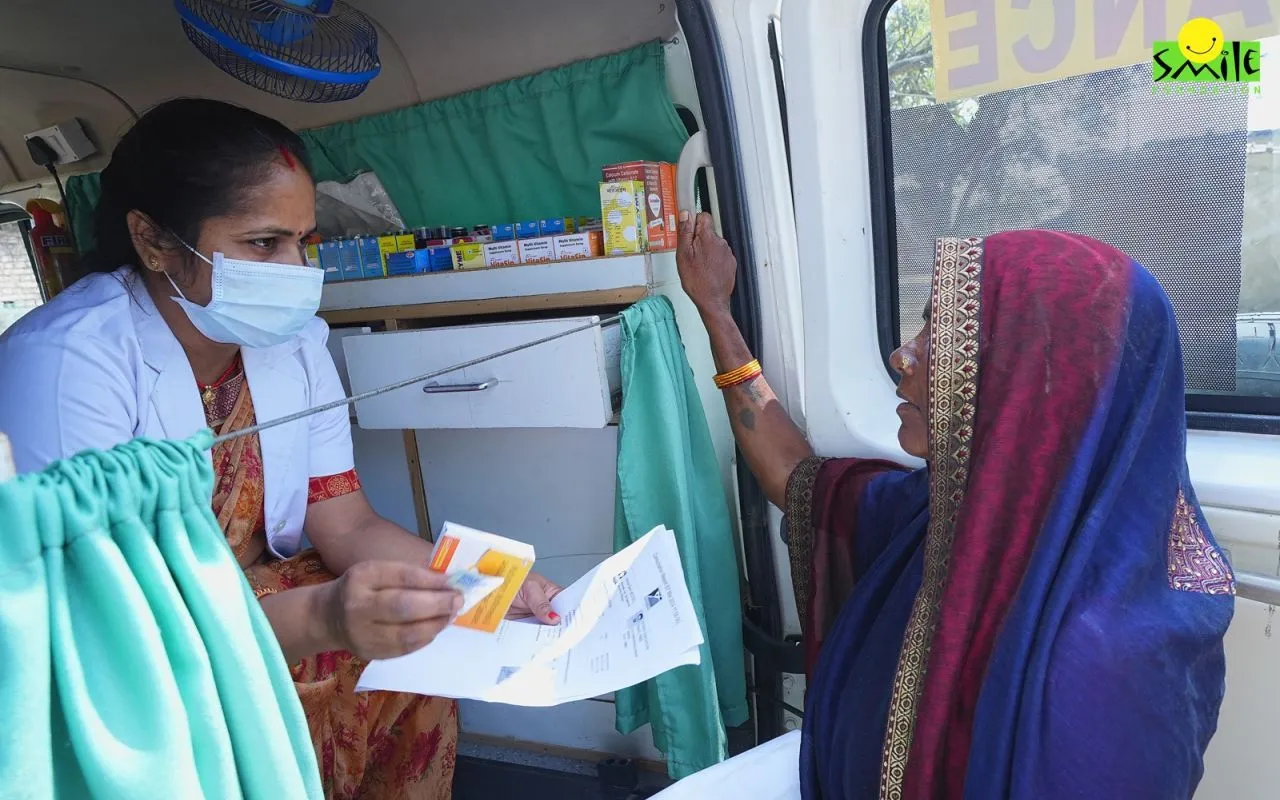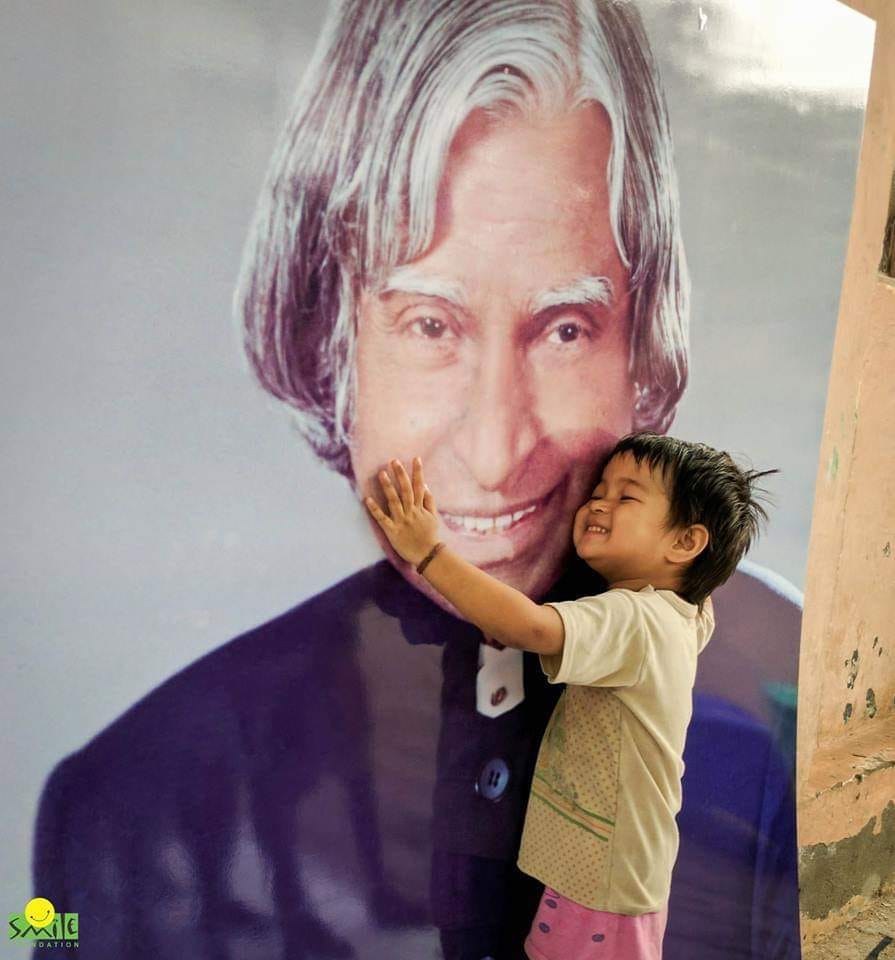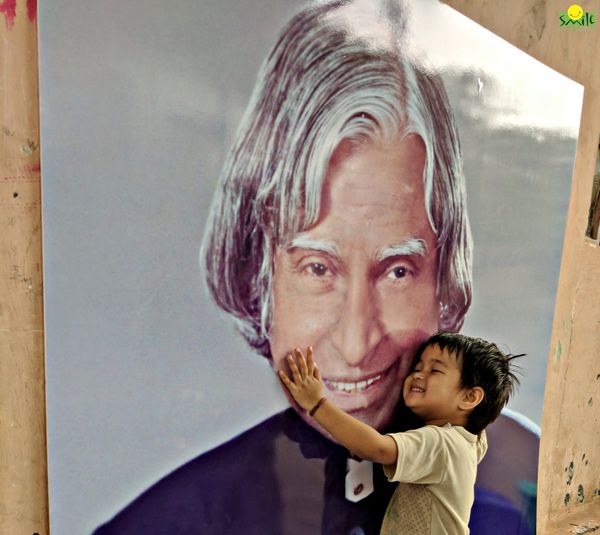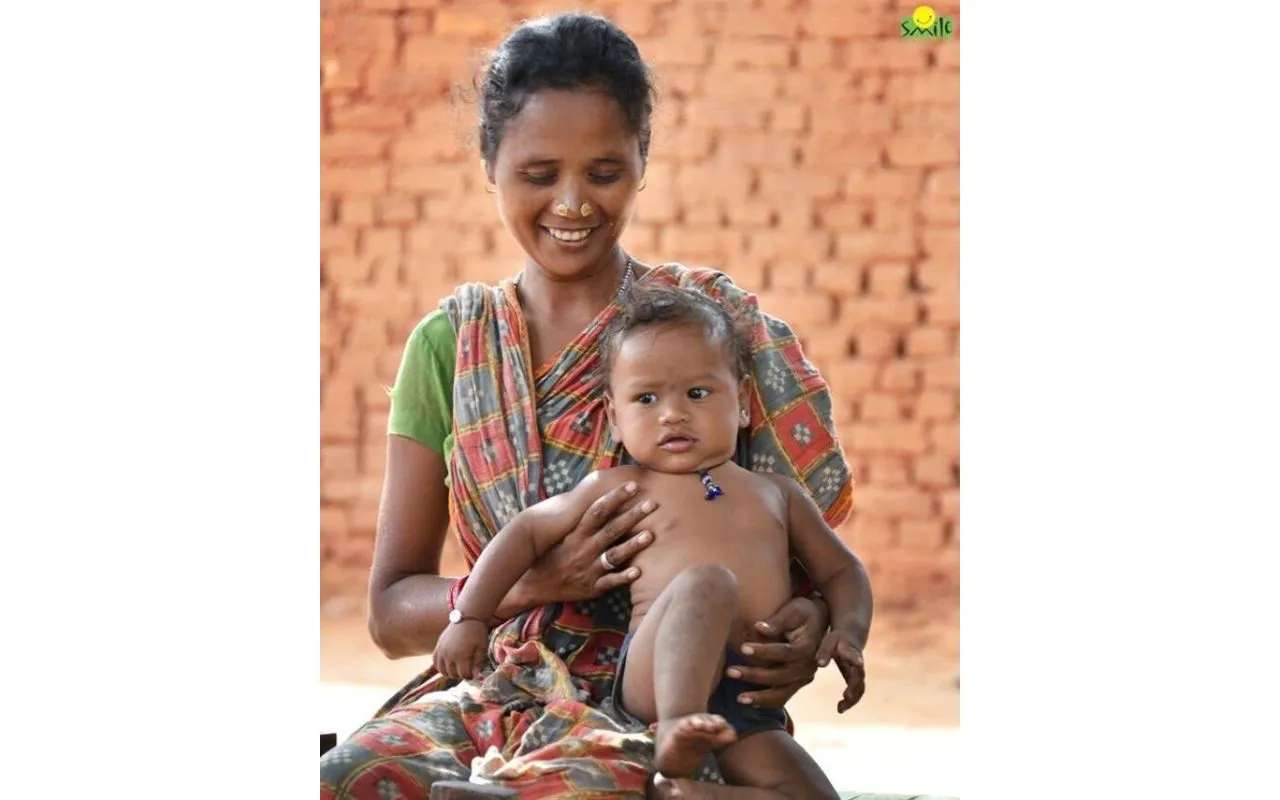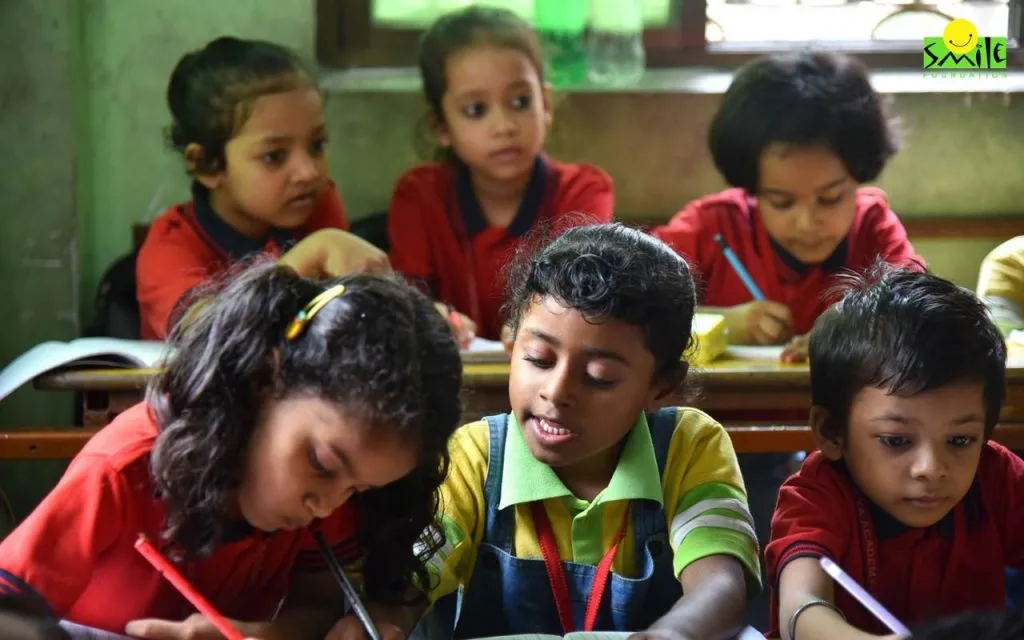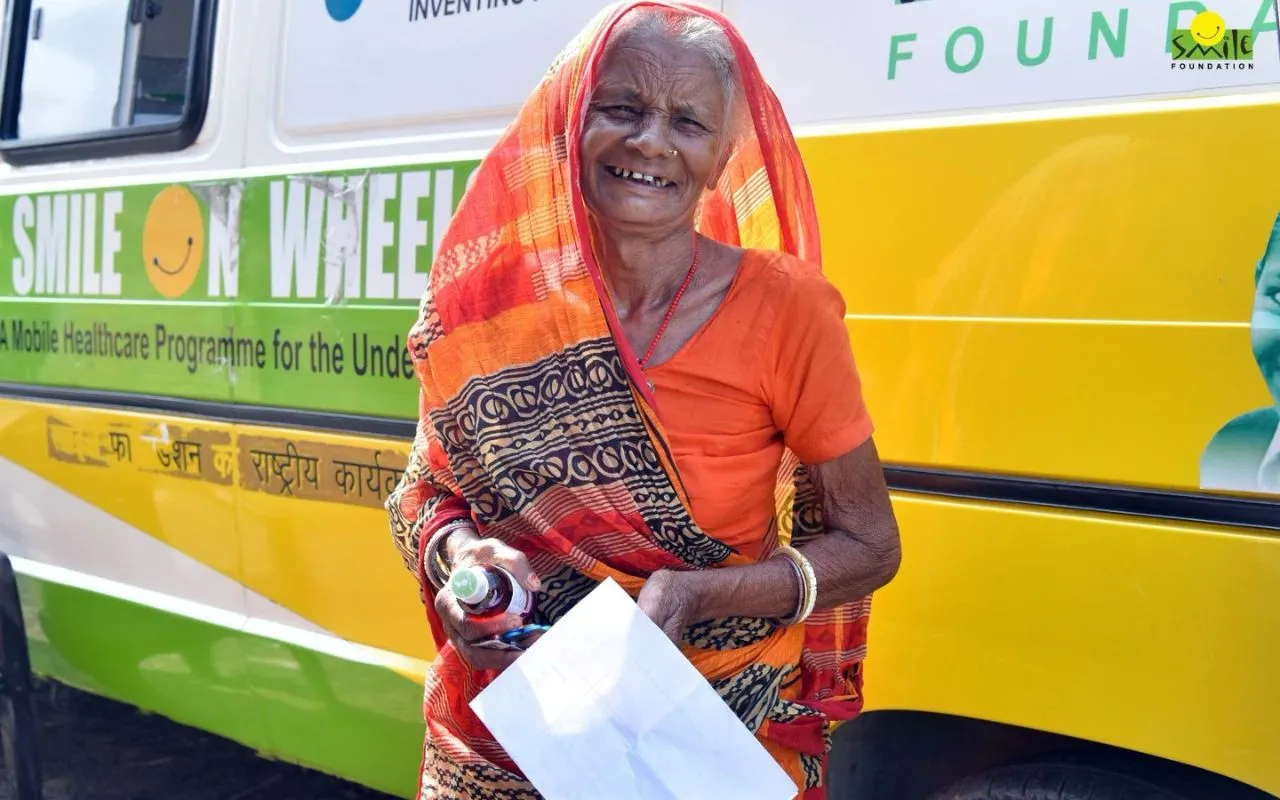Today as the world is evolving to adapt and innovate to the new normal environment, children have been severely affected in terms of their education, schedules, practices, learning process and social interactions. New hygiene practices, daily schedules, restrictive movement and the general observations related to COVID-19 have more likely made the children experience various degrees of anxiety, worry and uncertainty. This in turn has also changed the dynamics at home with parents being at the forefront to support the children’s online education process.
On the basis of the study conducted in June 20’ to understand the ground situation, the results showed that 56 percent of children did not have access to smartphones which is one of the basic essential equipment for online education and learning. This revelation prompted Mission Education team to gear up and initiate efforts along with NGO partners on ground to plan innovative and real time modes of teaching methodologies to be able to reach out to maximum number of students and keep them engaged in the
learning process.
Several ways of teaching learning exchanges were rolled out which were not exclusive to conducting online classes on WhatsApp, Google Meet, Zoom but also recorded classes, worksheets and video links were shared over WhatsApp. The initiatives came along with its challenges where majority of the teachers and students required orientation and handholding to acclimatise and become comfortable with the new learning systems.
Therefore, to know more specifically about the challenges and needs of the
children and their families in these pandemic times, a survey was
conducted amongst the beneficiaries of the Mission Education centres, on
education support in addition to health hygiene awareness, mental well-
being and nutrition status.
A total of 3533 beneficiaries were surveyed pan India from both Social
Venture Philanthropy (SVP) and Outreach centres with the aid of a questionnaire capturing information through personal interviews at the beneficiary’s home or virtually over call with the beneficiary’s guardian.
Challenges in the neo normal learning process
There have been tremendous efforts put in by the Mission Education centres, in initiating online and other modes of classes for children to continue learning within the purview of existing limitations in different areas. Regardless, there are still gaps and needs felt by the beneficiaries in effectively accessing online learning. With only 51% of the respondents satisfied with the current learning methods, 80% are waiting for schools to reopen after the lockdown is lifted, as they are inclined to send their children to school. This could be attributed to the altered work and home routine of parents who might be finding it difficult to adjust to the online learning schedules of children.
Almost 68% feel that the online/tele-calling classes are very rarely (sometime/never) scheduled as per parents availability since most of the parents having started going out for work or they have one mobile for both their work and their child’s study. Moreover 95% of the respondents
have two or more children at home which could also pose challenge in providing mobile phones to each one of them, with almost classes scheduled at the same time for all children.
Regarding accessibility to mobile phone with ease, 68% of respondents expressed that they need guidance or they are not able to access properly while 74% are not able to guide their children regularly. Furthermore, 44% mentioned that they do not have adequate availability of educational
resources to facilitate home-based learning for their children.
Interestingly, 52% of respondents were ready to learn to support their
children to adapt to the new learning process while 48% felt that they are
not prepared or equipped to help the children. This manifests the glaring
need for more orientation and support in terms of digital literacy for the
parents and guardians to support their children academically.
For 48% , online learning is considered as the most effective learning method with the help of tools like Zoom, Google Team, WhatsApp, etc.
where the children are connected to their school, teachers and learning content through live as well as recorded classes. The other most
effective methods according to the respondents are sharing worksheets (44%) over WhatsApp or handing over to parents at the centre/home besides tele-calling parents and teachers visiting homes to meet beneficiaries. A very small population of around 8% even explore other education based apps and this is probably because majority of the
parents are not aware about how to use applications appropriately or it could be also due to lack of space on phones and limited data pack.
However, the primary support indicated by 53% of surveyed respondents is the need for adequate educational resources inclusive of books and
other teaching learning materials with 53% while other kinds of support mentioned include mobile phone, internet support and related accessories to continue the learning process with the desired results.
Therefore, without letting a good crisis go to waste, the need of the hour is to bridge the digital literacy gap by facilitating digital learning process thus bring children from all settlements closer to the new learning systems.
To know more about Smile Foundation’s education programme visithttps://www.smilefoundationindia.org/education.html



